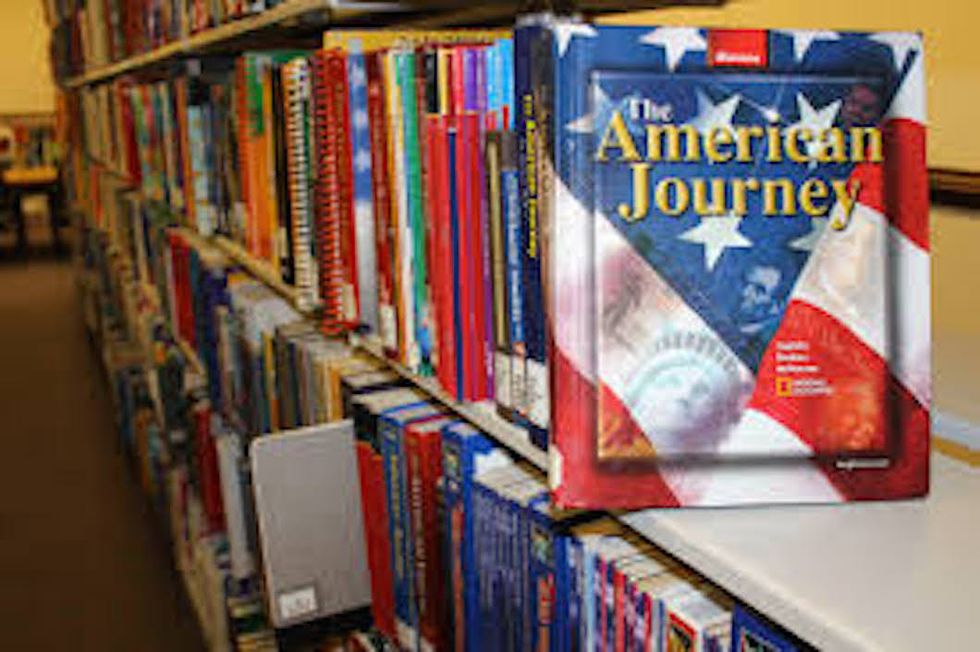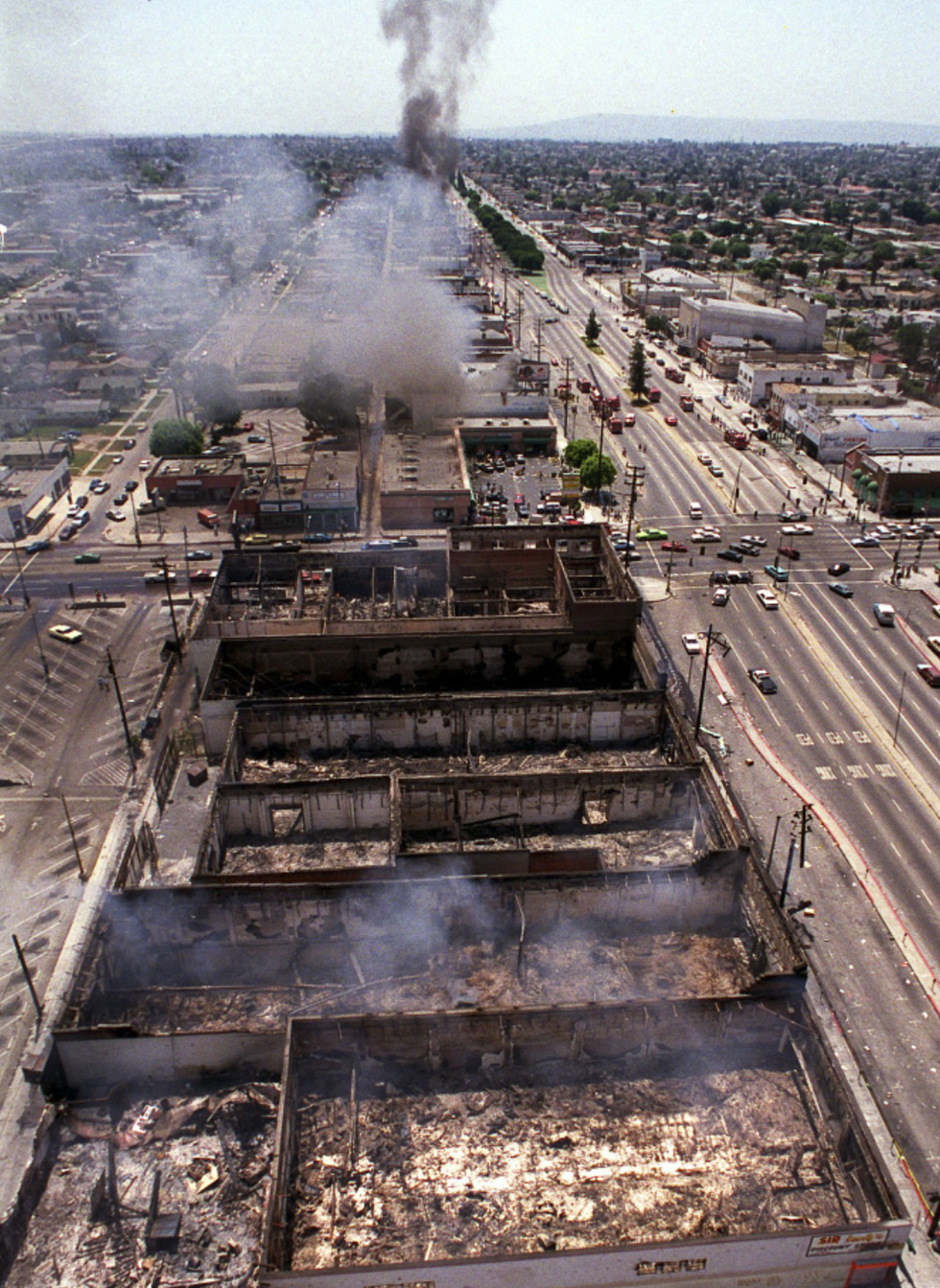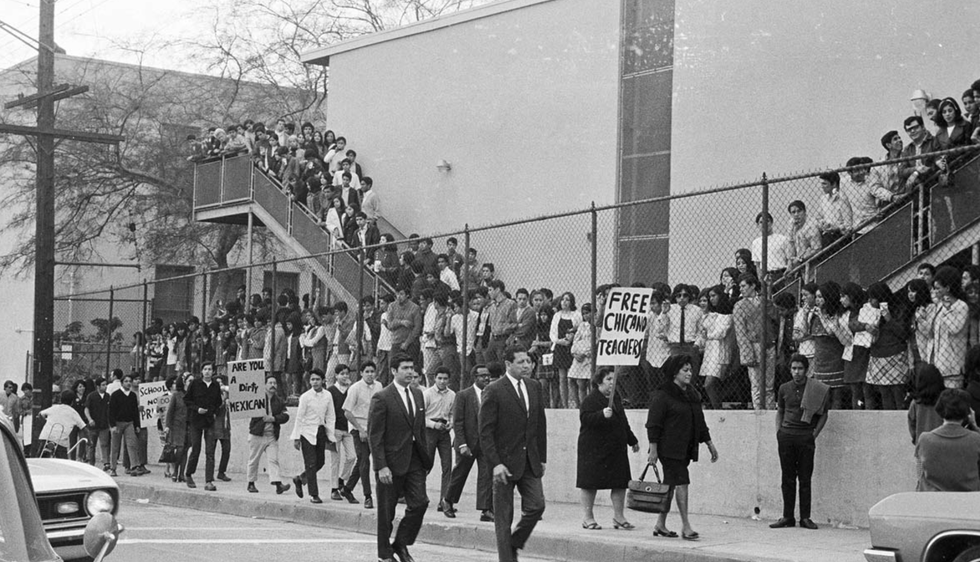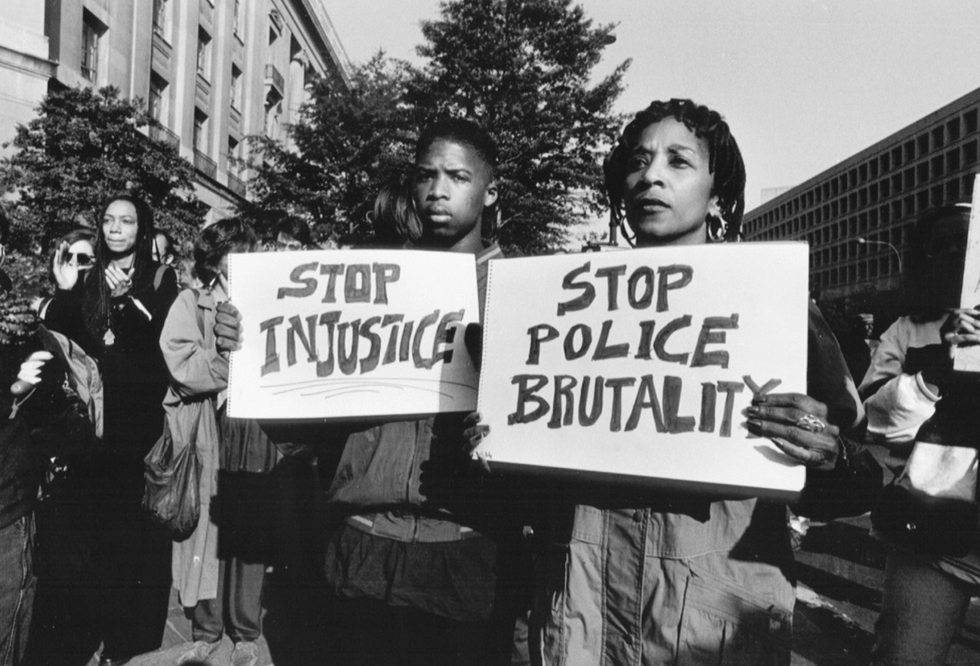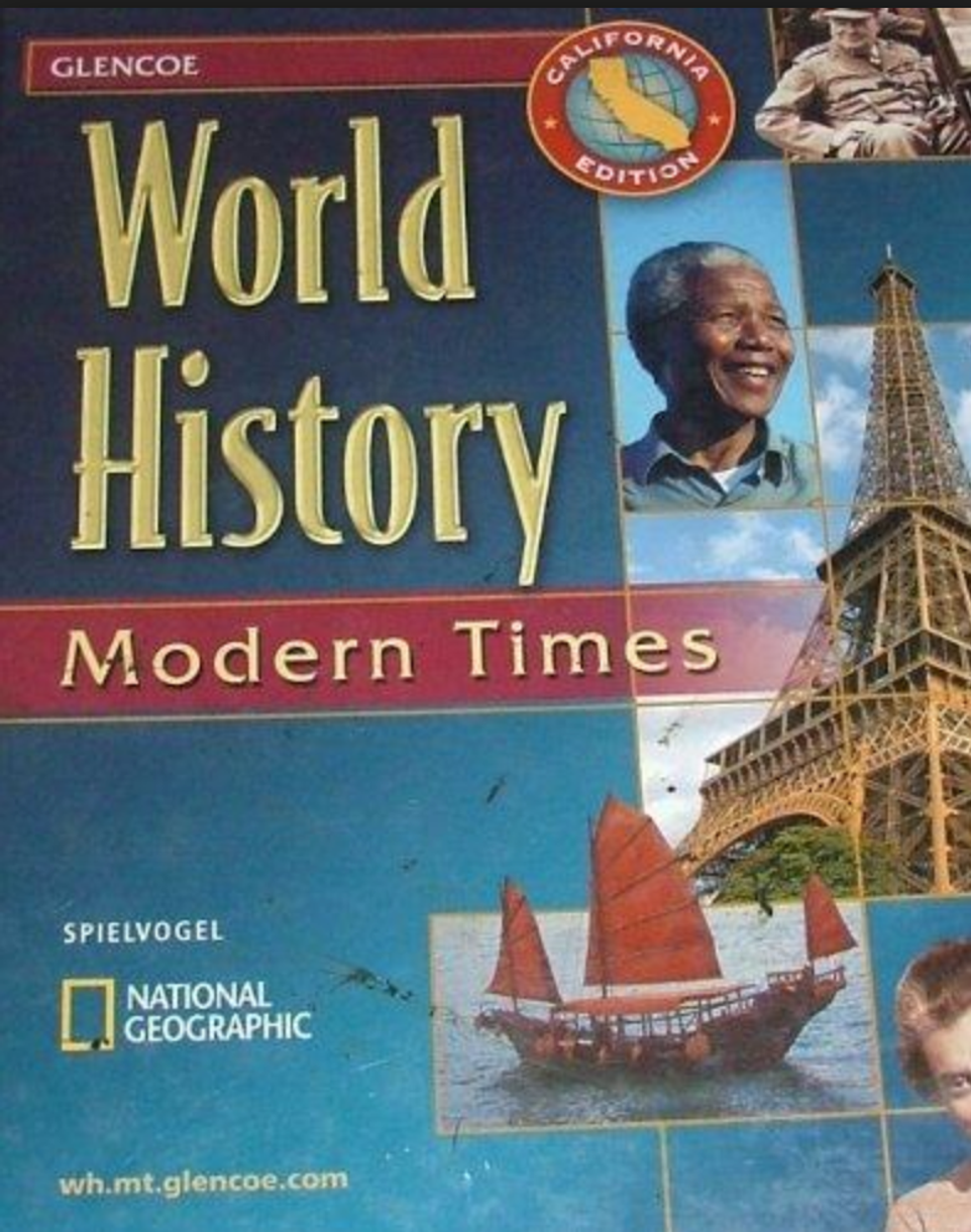Think about your time in high school, specifically in your history classes. Do you remember learning about any issues regarding those who were considered minorities? Is it possible to say that you never learned in depth about the issues regarding minorities? Indeed there might be some sensitivity when talking about these issues, but learning about minorities and the issues they dealt with would help students become more socially conscious. \Learning about racial issues in history classes during your time in high school doesn’t only allow educators and students to grow into being more aware. US history classes can give high school students the opportunity to create a better understanding of one another through communication, how to help democracy, and bring awareness of racial inequality.
In a report done by the Carnegie Corporation of New York, it was shown that students who are taking history in high school and are shown the connection between the past and present are more likely to vote, volunteer, and contribute to what is going on within their community. Not only that, but it also shows that students feel more confident that they are able to communicate ideas with elected officials or representatives.
This report proves more truly why history classes are important and should be teaching students about the racial issues that can have a connection to the issues that our society is currently dealing with. What I got out of this report was that students who take history classes in high school are most likely to show some contribution to their community; students feel well informed to be able to communicate with officials and representatives.
Most importantly, I think it shows that students are effectively learning in the history classes and would realize that history repeats itself in many ways. Some examples on situations that it has repeated would be with racial discrimination, police brutality, military miscalculations, and for future generations, it is important to learn about the past to prevent it from repeating again in the future.
As a society, it is discussed that future generations need to have some contribution to democracy. This study clearly supports the point on how history classes allow them to do that, especially for those who want to become more aware of what is going on in order to figure out how they can take action to make a change. The only thing is how can that happen if textbooks are known for not presenting the correct information.
L.A Riots on April 30, 1992
There are facts within history books that are used in high school classes such as the McGraw Hill books that do not state or phrase facts correctly. For example, in the books of McGraw Hill, there was a caption under a picture in connection with the Atlantic Slave Trade. The caption read, “The Atlantic Slave Trade between the 1500’s and the 1800’s brought millions of workers from Africa to the southern United States to work on agricultural plantations.”
This caption caused a major problem for many who were African Americans because of the reference to workers rather than being called slaves and how they referred to the slave trade as a form of immigration. History classes need to integrate more information and topics about minorities to help give future students a more accurate and realistic foundation for understanding the past, present, and future.
Teaching students that slave trades are not a form of immigration would help them to understand how cruel we were towards those we were brought by force to a country that was supposed to be a land of freedom. With teaching accurate American history, the positive outcome for teaching them the correct information about things such as the slave trade would be that students would understand the background of the event, so that history wouldn’t repeat itself. In some cases, it has been presented that there is a lack of importance in US History classes.
Why? Because teachers are just transferring repeated knowledge to their students instead of having an open conversation with them about the different ideas that come about within US history. There is no reason why teachers should be shying away from talking about topics regarding minorities because minorities were a big part of US history anyways.
We talk about things now that has actually happened in the past as if they never happened yet, we are still trying to look for a solution for these things. How do we expect high school students to be socially aware of what is going on in society if they aren’t being taught the proper material in their history classes?
In today’s media, we are watching and listening to conversations about police brutality and discrimination amongst our school systems as well as our neighborhoods. When it comes to things such as big historical movements regarding minorities, why is it that it is hardly ever spoken about or taught in history classes throughout high school?
One can recall the LA Riots in connection with the Rodney King case that occurred in South Central Los Angeles on April 29, 1992. For those who are not familiar with the LA Riots, they were about four white LAPD officers that were involved with beating a black motorist by the name of Rodney King in 1991.
The riots lasted approximately five days in April 1992 and left 50 people dead and 2,000 people injured. The reason I am bringing this movement up is because of the significance of the racial discrimination and the police brutality idea and how they are still relevant to what is currently happening in our society now.
Chicano/a Movement in 1968
In connection with the LA Riots, the Chicano/a movement in the late 1960’s were about racial injustice, discrimination within the school system, and the loss of equal opportunities.With this movement, it was considered to be one of the major events in 1900’s that changed the police enforcement. Though these topics are never spoken about in US History classes, they brought an abundance of changes in society such as embracing their right to freedom of speech and giving minorities a voice within society.
These two big movements intertwined with one another by the way they both include discrimination and police brutality. They share the common theme of wanting to have a voice on what is going on within society, but also raise the point that they are just as important as any “white person” is in any sense; whether that be in the education system or in the eyes of the law. These two movements brought different changes.
For example, the Chicano/a movement in the late 1960’s was able to increase the fall enrollment for Chicanos from 3% to 25% at the University of California Los Angeles and the LA Riots rose awareness of excessive police force. They both had huge impacts on society yet, they are never spoken about in US History classes.
Throughout the education system, there has been a lack of importance to history classes that give light to minority issues. From a student’s perspective, an article from The Atlantic said, “There is a rise of boredom from students who find history uninteresting because it has been repeated to them over and over again.” The reason why I bring this quote up is because it goes on to explain how teachers who teach US History classes are typically assigned to teach that subject; this lack of interest follows from the teacher and is felt through the students.
If the teacher does not have any interest in history, it causes more difficult to teach a lesson because there aren’t any signs of importance that is being shown to the students. None of the teachers were making any distinct connection to contemporary issues to what we were being taught in history, especially in US History class.
Compared to a public high school, it was slightly similar. The curriculum was no different than the curriculum, I was being taught in a private high school; it was all the same. History is known to repeat itself, but why are we not connecting the past issues to what is happening now?
Police brutality and discrimination is a common thing nowadays. These are nothing new to the world, they are pure examples of how history continues to repeat itself. Statistics show that in 2015 approximately 1,307 civilians lost their lives at the hands of someone who was either a police officer or law enforcement official.
Although the number decreased by 155, both years were oddly enough still high compared to how many people were killed by police in 2014 which was 1,149. To add to this, people of color are twice as likely to be killed by police officers even when the person of color is unarmed. In connection with this issue, the idea of discrimination is presented in the last piece of evidence. Discrimination has also been something that has repeated itself within history.
For example, almost half (52%) of Hispanics in the United States talk about experiencing a form of discrimination or have been treated unequally because of their ethnicity/race (Lopez, Krogstad). These two big issues, police brutality, and racial discrimination have always been issues that are always occurring - yet, we act as if they are both new concepts and that these things never happened before.
Protesting in Rodney King era
We are teaching students that these issues are something new when they have occurred in times such as 1960’s and earlier. It is important to inform high school students who go take US History that they are knowledgeable of how history has repeated itself, so they can learn how to change it and stop it from repeating. Teachers have to have an open communication with their students and discuss thoroughly how the past is still relevant now.
Having an open communication between students and teachers is something that can benefit both parties, especially the students because they are allowing themselves to be open to contradicting ideas. Paulo Freire was an educator and philosopher who was a big advocate for open communication between students and teachers. He once said, “Education must begin with the solution of the teacher-student contradiction, by reconciling the poles of the contradiction so that both are simultaneously teachers and students” (Freire, 72).
This ties back to the idea of open communication by showing how both parties are learning from contradiction and by both of them learning from each other, they both are teacher and student. Open communication is key, especially in high school because students are more capable to become socially aware with what’s going on in society and tie it back to the past. Freire once stated, “Education as the exercise of domination stimulates the credulity of students, with the ideological intent (often not perceived by educators) of indoctrinating them to adapt to the world of oppression… Authentic liberation -the process of humanization- is not another deposit to be made in men. Liberation is a praxis; the action and reflection of men and women upon their world in order to transform it” (Freire, 78-79).
This quote further explains how teaching students and having an open communication with them causes a sense of liberation; in the sense that they will go on into the world and transform it for the better. Having a sense of liberation in education is good because it consists of acts of cognition where a person is thinking critically, instead of being transferred information and not having the skills to critically analyze what is given to you.
Not to shy away from the idea that most people may think that history will always repeat itself. Many may say that high school students are just going to forget what they learn and not even contribute to democracy. It is possible that in some cases there will be students who will choose not to participate, but why should that stop us from teaching the correct US history that students should know.
Others may say that having an open communication amongst students and teachers is setting no strict boundaries between them and the relationship is going to be more of a friendship than teacher and student. For example, in Arizona, there was a high school that banned Mexican American studies. Apparently, this ban took place because the class was supposedly “motivated by racial animus” (Strauss).
The ultimate intention of creating this class was for students to see themselves or their community within their studies. Many may just agree that this class was motivated by racial hostility and there will never be a way to steer them to think otherwise. People may think that there is no need to discuss minorities because they are already incorporated within US history and to them, that is correct, but would majorities feel like they are being overthrown if US history classes went into depth about minorities?
McGraw Hill History Textbook
In all honesty, US History can be a drag, but it is something that is a requirement in high school. All students have to take it in order to graduate and move onto college, but it is about teaching them the right information so that they can improve our society as well as contribute to growing our democracy.
Having open communication between teacher and student will help with being able to understand different perspectives, especially ones that can be contradicting, but it helps with having the skill as well to be able to critically analyze different information that is being given to one another. We are relying so much on the future generation, yet we are not helping them to grow their knowledge and understanding of the past.
In life, there will always be people doubting on how history, specifically US history, should be taught. Nothing will be able to change unless those who choose what are in the books learn the correct information so that there is not a cause for racial narrative within students. The more students know the more they will be able to understand. There will always be mixed questions about US history classes and the issue of minorities being forgotten within history.
In a sense, it is understandable why a person of color would want to talk about their race/ethnicity background, but it is also understandable that some people may feel like minorities are spoken about too much within history. It honestly all depends on the communication and being able to have the students to be open minded about talking about history as well as be willing to learn how to critically analyze a piece of information from the past.
Just like it has been stated before in this essay, history repeats itself - it is up to us to prevent things from happening again. The question for this situation is that if high schools were to incorporate minorities within their US history classes, would it cause some sort of racial tension with the majorities and the minorities? If so, why and can that be settled peacefully?

